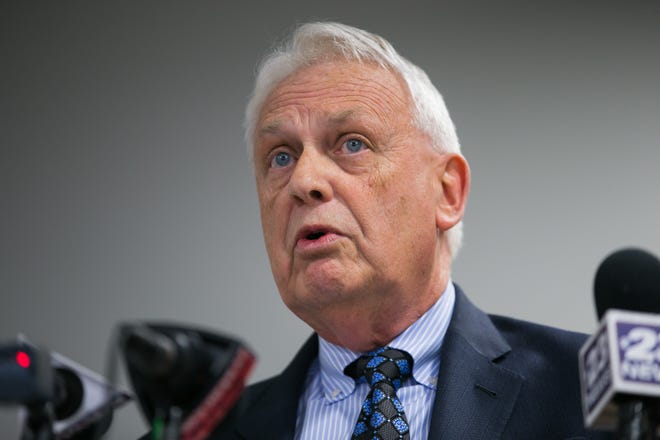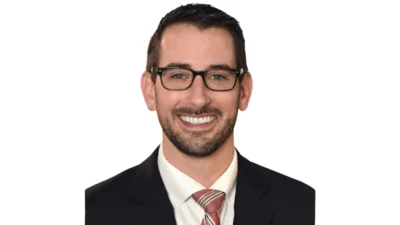Mercy Rockford Health System issued the following announcement on Dec. 4.
Mercyhealth has started using cutting-edge antibody drugs designed to keep mild to moderately sick COVID-19 patients from being hospitalized. COVID-19 monoclonal antibodies are being given to patients Mercyhealth’s Javon Bea Hospitals, using bamlanivimab, created by pharmaceutical company Eli Lilly.
The treatment arrives as hospitals across Illinois are besieged by a second wave of the coronavirus. There were 5,653 people with COVID-19 in Illinois hospitals as of Friday, down 8.5% from the high of 6,175 on Nov. 20, the day statewide restrictions designed to curb the spread of the virus went into place.
A limited number of doses are available here and at health care systems across the country after Eli Lilly and Regeneron were recently granted emergency use authorization by the Food and Drug Administration for their antibody products.
The laboratory-made antibody, which is administered intravenously, is designed to mimic naturally occurring antibodies that fight off the coronavirus. It has to be administered early — within 10 days of the onset of symptoms — in order to be effective. It is not a treatment for people already hospitalized.
The infusion takes an hour, after which the patient is observed for another hour to monitor any potential allergic reaction. Mercyhealth started administering infusions to patients who qualify on Monday, November 30, at its Rockton Avenue campus but expects to expand to the Riverside location, too, said Dr. John Dorsey, chief medical officer for Mercyhealth.
For now, the treatment is being offered only to patients at high risk of requiring hospitalization. Adults 65 or older or those who have a body mass index of 35 or higher are given priority for the treatment. People who have tested positive for COVID-19 should ask a doctor about the treatment.
“We don’t have enough doses to give to everybody who falls into all of the risk factors,” Dorsey said. “As the supply of both (antibody drugs) increases, we will very quickly expand to everybody that falls into the higher-risk category.”
Dr. John Dorsey, shown at a news conference on March 15, 2020, is vice president and chief medical officer of Mercyhealth.
Other high-risk factors include chronic kidney disease, diabetes, immunosuppressive diseases, sickle cell and cardiovascular disease.
The federal government purchased hundreds of thousands of doses of monoclonal antibodies and is distributing them to the states. That means that patients aren’t required to pay for the drug, but they may incur the cost of infusion.
Approximately 20% to 30% of local hospital beds are filled by COVID-19 patients, Dorsey said. No longer are they dealing with shortages of protective equipment as they did at the onset of the pandemic in spring, but doctors, nurses and other staff members have been challenged by long shifts and extra workdays.
“It’s a staffing issue,” Dorsey said. “The staff are working hard. They’re overworked.”
{Portions of this article are excerpts from a RRSTAR article published on December 4, 2020. To read the original, CLICK HERE.}
Original source can be found here.


Source: Mercy Rockford Health System




 Alerts Sign-up
Alerts Sign-up